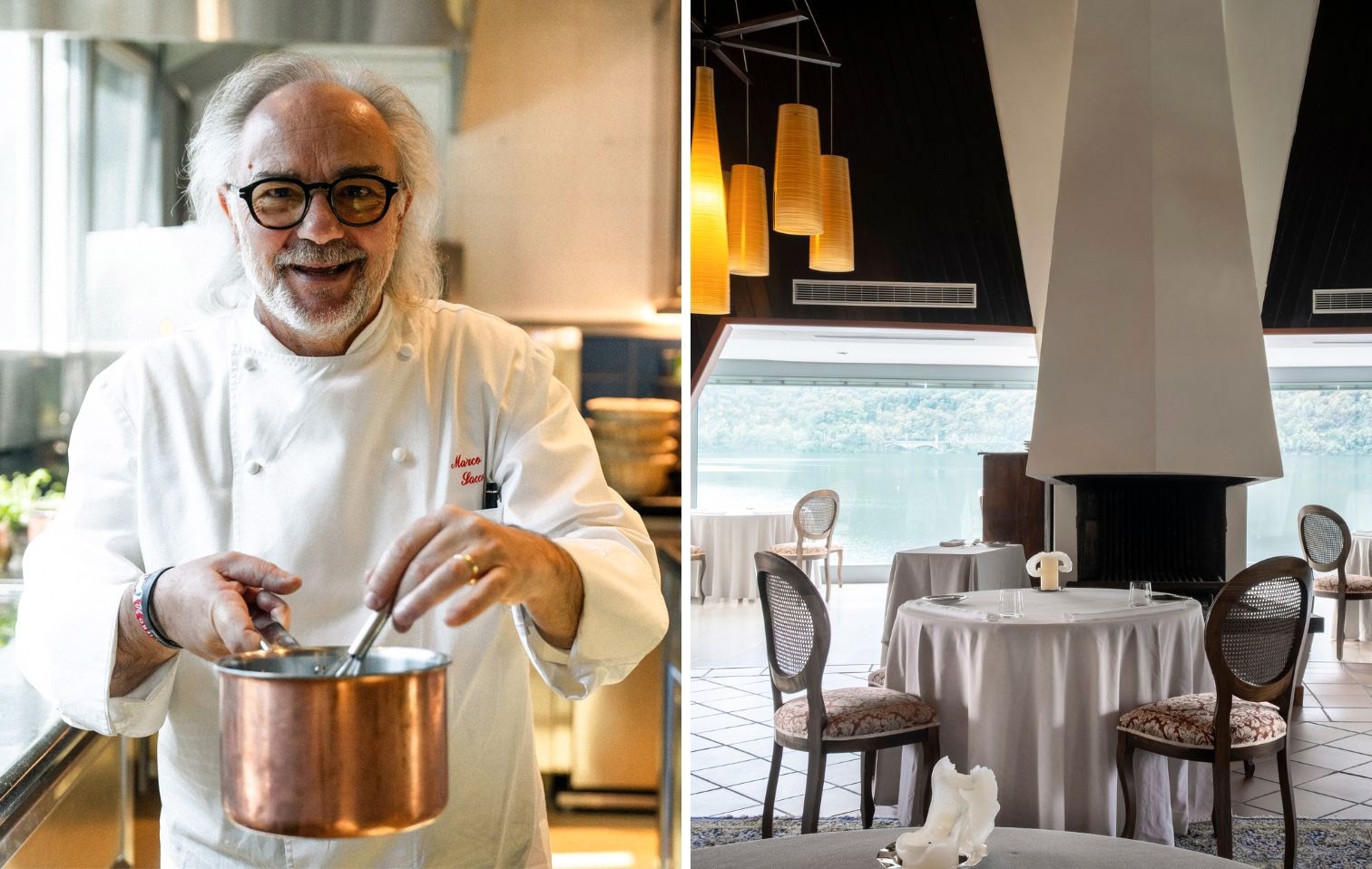50 Years Long Lake: Marco Sacco celebrates the past with an eye open to the future. An 8- course menu capable of being local, identity-driven, creative, playful and theatrical all at once is staged in the 2 Michelin-stars sign.
Restaurant photo: Katie May
"Alive and kicking, stay until your love is alive" sing Simple Minds in one of their most famous singles, released in September 1985. Verses that come to mind again at the "Piccolo Lago" restaurant in Mergozzo (VB): here, on the shores of the lake of the same name, one continues to breathe a living and vivid love for cuisine, hospitality and gastronomy.
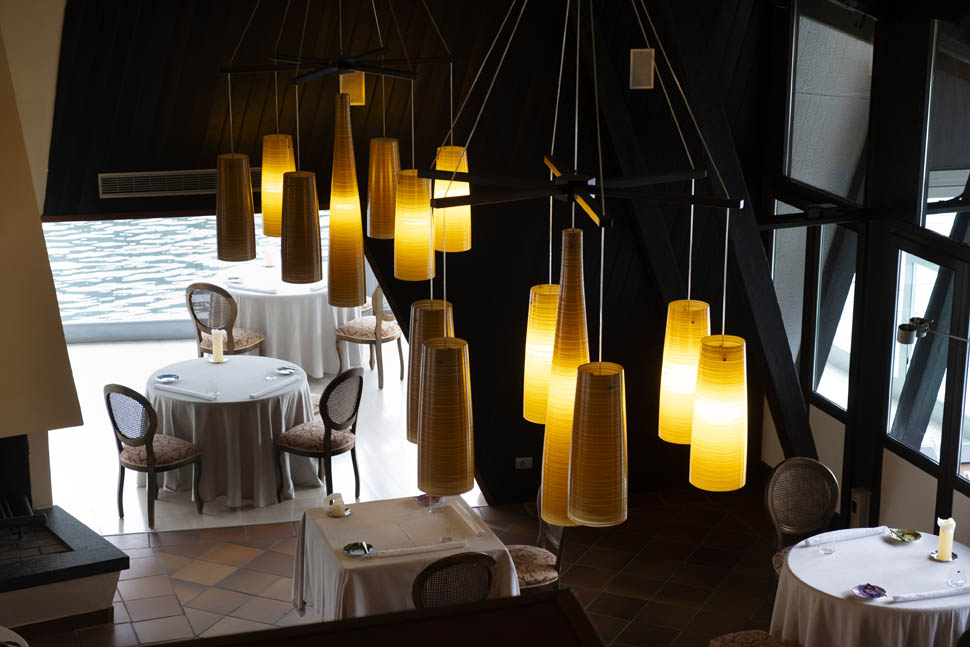
Piccolo Lago: 1974 - 2024
The chance for the visit is one of those rare ones: 2024 will mark the 50th anniversary of the restaurant, founded by Bruna and Gastone Sacco, parents of Marco Sacco, chef patron who, together with his wife Lella Marchetti and sons, manages a group of realities consisting of the Piccolo, the "Piano 35" restaurants in Turin and "Il Verbano" on Isola dei Pescatori (Stresa).
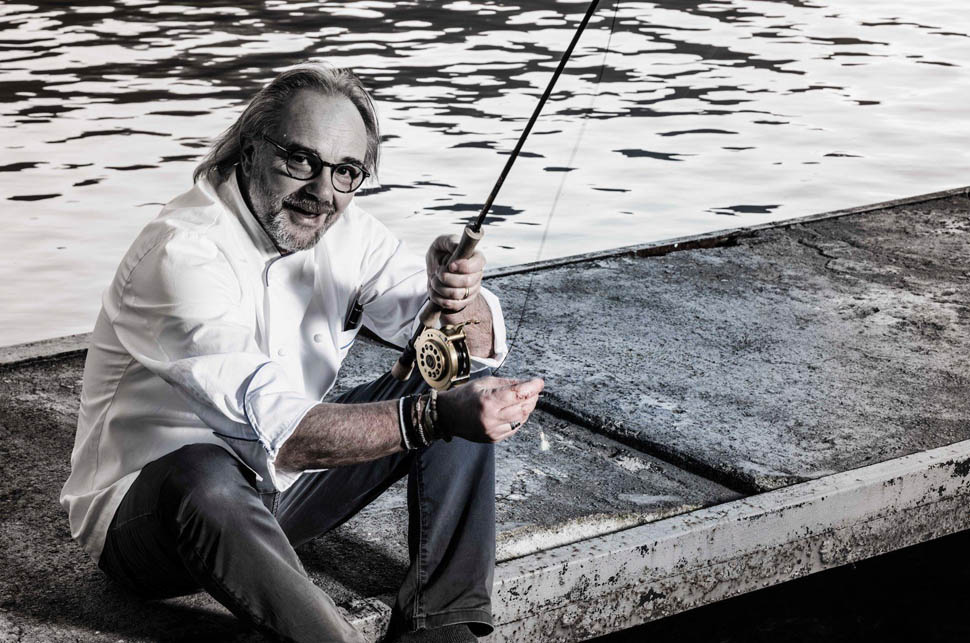
Marco Sacco is one of the masters of Italian gastronomy, considered one of the greatest experts on freshwater cuisine to the point of having conceived and organizing the annual Gente di Lago Festival, dedicated to everything that revolves around this ecosystem.
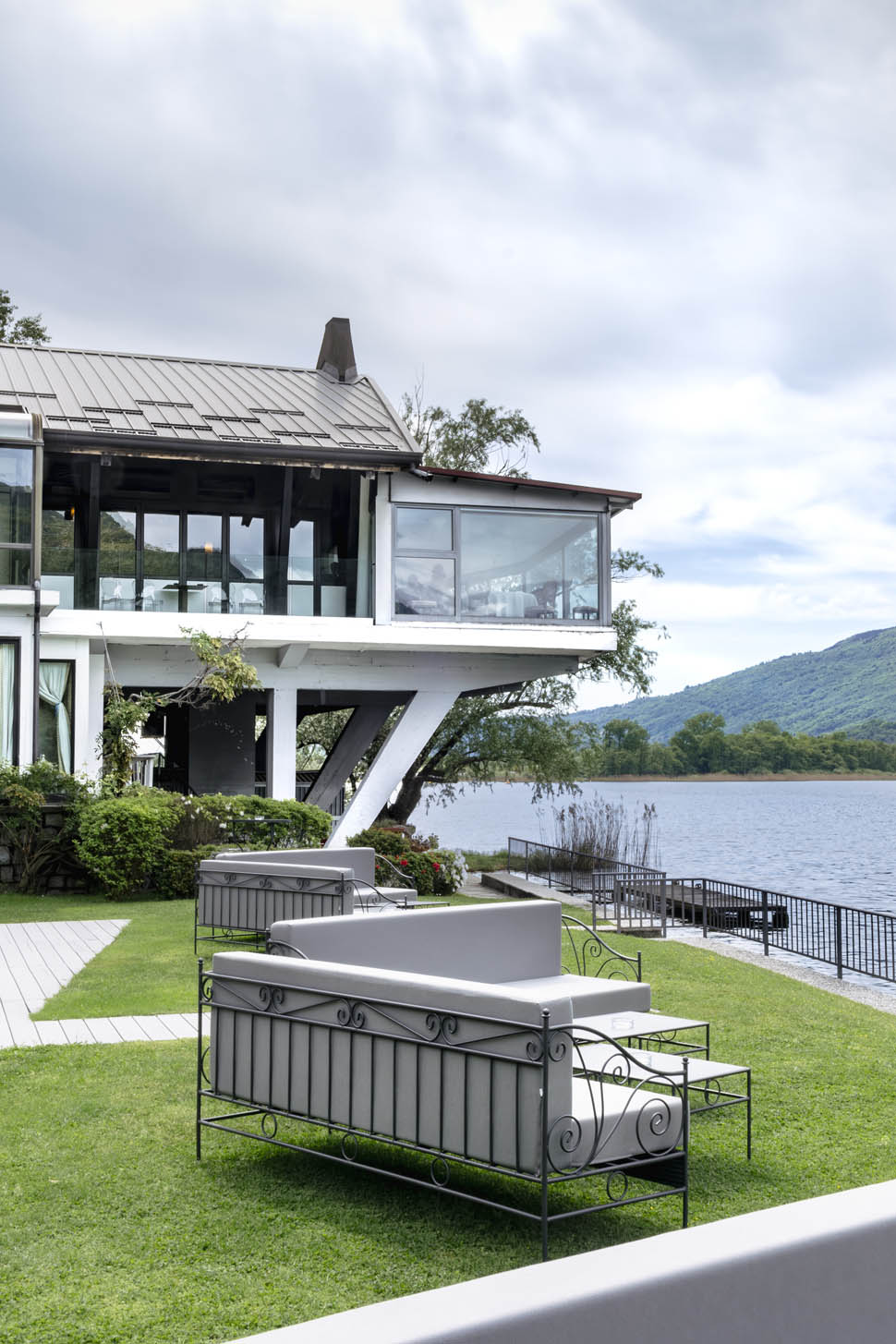
When faced with 50 years, a restaurant usually has two types of approaches: the most common is the conservative approach of "Greatest Hits," a tasting menu that brings together the dishes that have made the history of the house; the second is to celebrate the past with the future in mind.
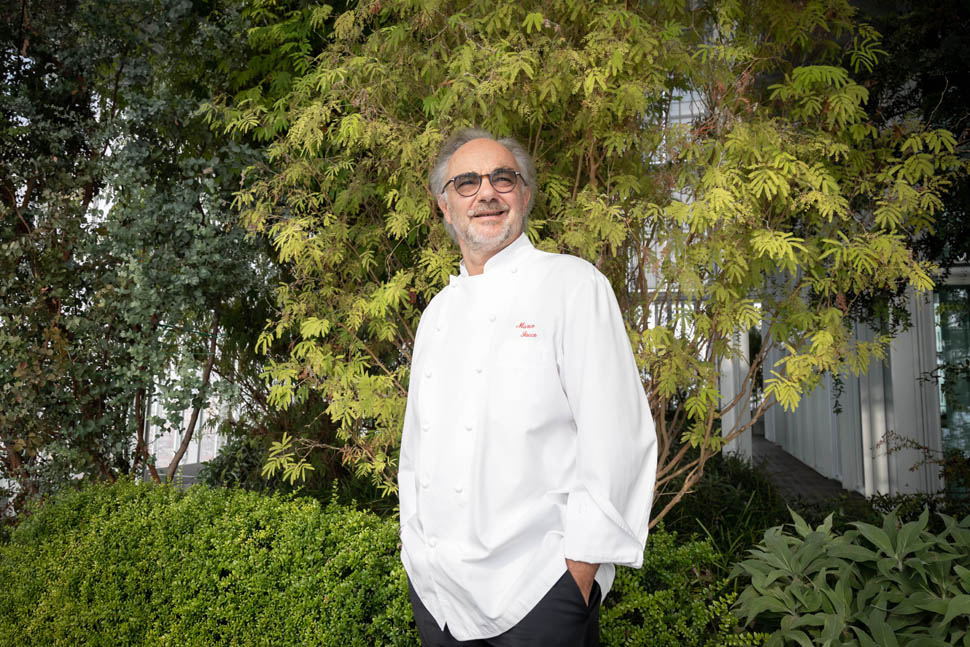
Sacco is inextricably linked to his homeland, yet has the soul of a traveler and a past as a talented windsurfer. Perhaps it is his talent for sniffing the wind that prompted him and his brigade to choose the second approach, a testament to a creativity that still inflates the sail and has generated a menu reminiscent of a concept album, to continue with the musical metaphors: it is called "Lungolago," and it is an 8-course capable of being local, full of identity, creative, playful and theatrical all at once.
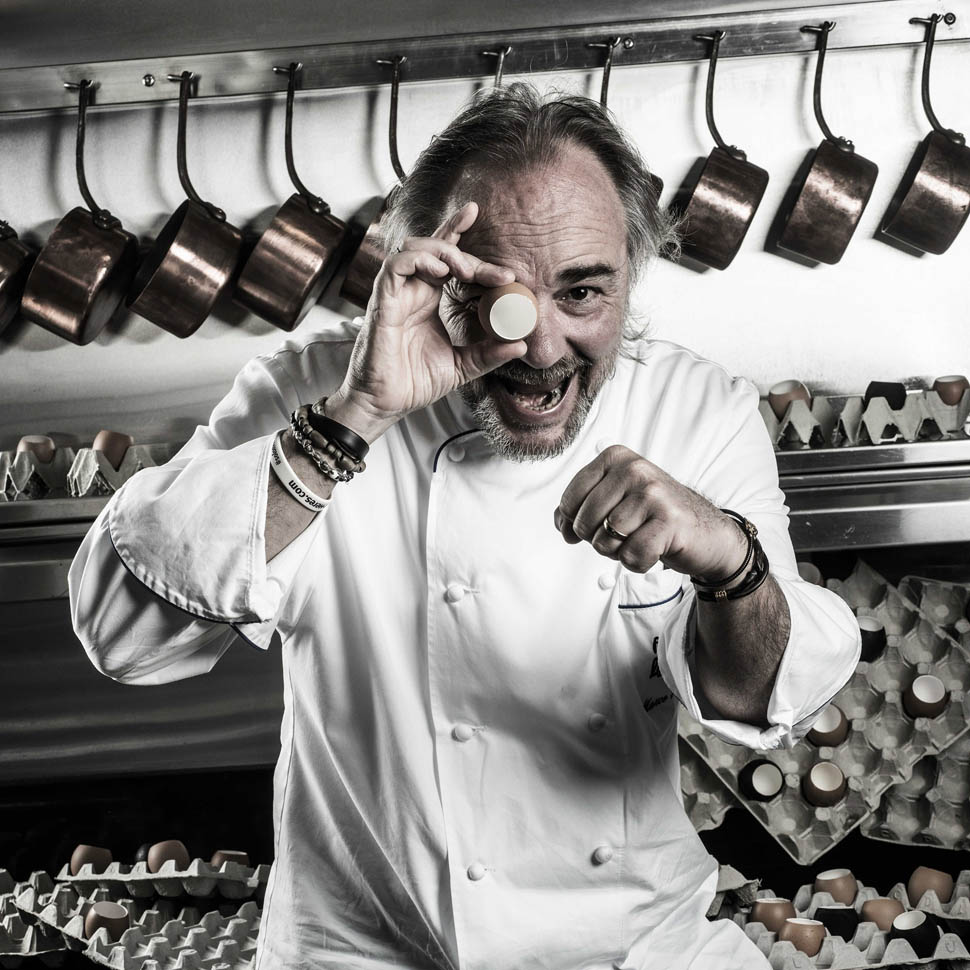
Before the "Lakeside," however, comes the lake. The unwary gourmand might think that the restaurant is on the shores of Lake Maggiore, since we are for all intents and purposes in the municipality of Verbania, but in the 3 kilometers that separate Lake Maggiore from Lake Mergozzo, the world changes.
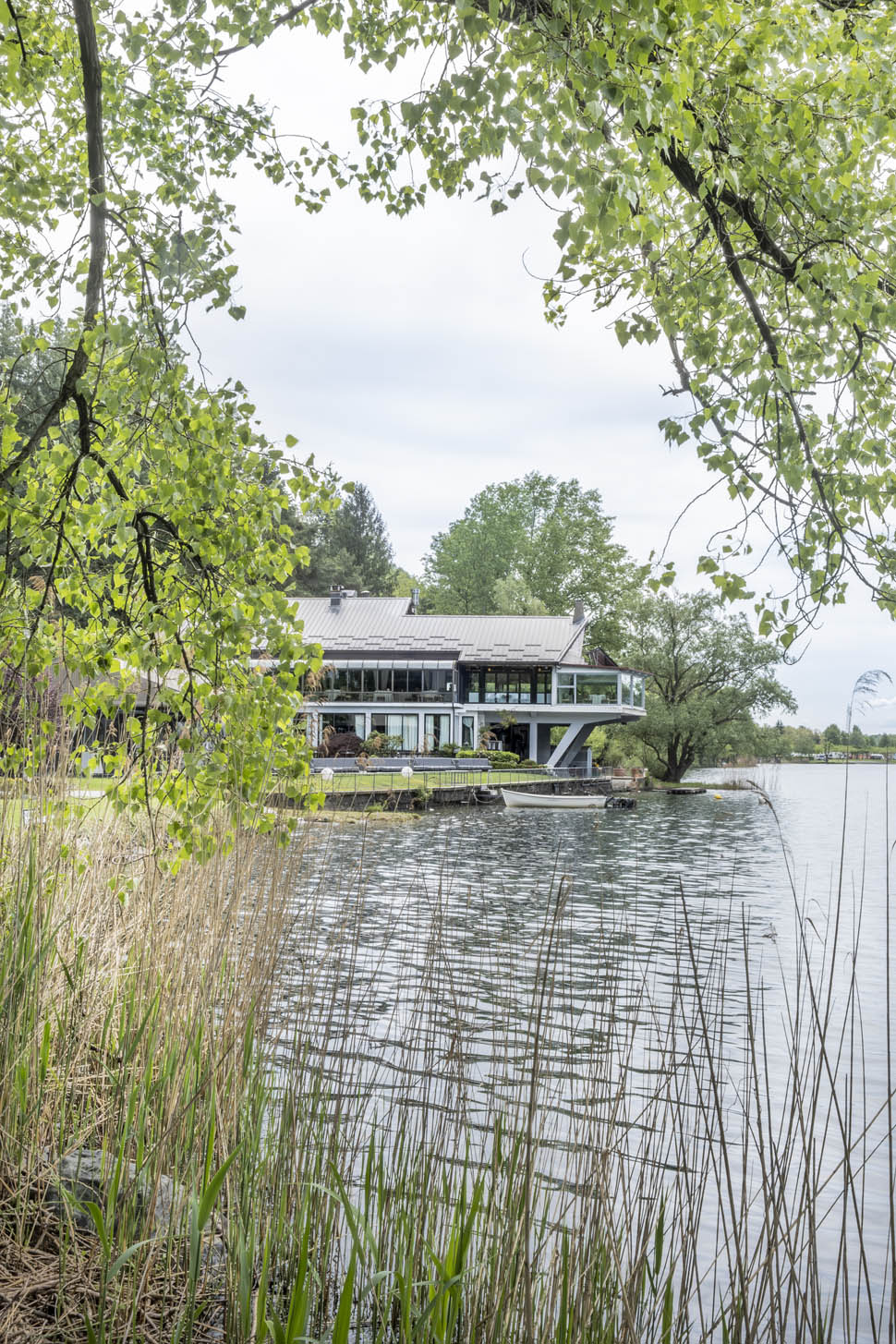
Over there noise, ferries, motorboats, villas, palaces, Borromean Islands and overtourism; over here sailboats or electric boats, clear, clear water, forests of mesmerizing greens, a single town of 2,000 people, and all the rest quiet.
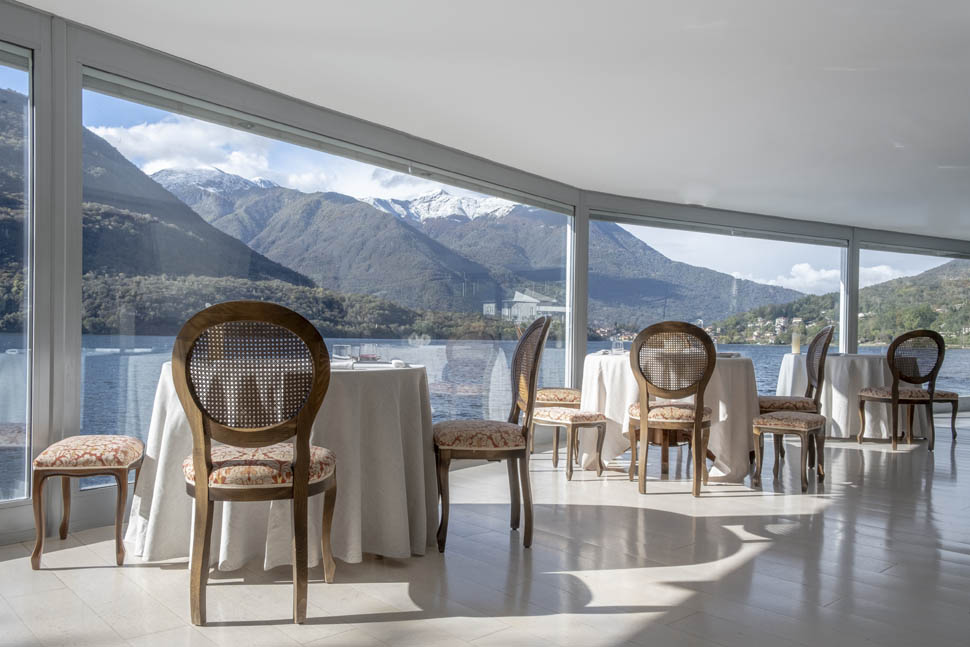
The restaurant
The restaurant is an epiphany that astonishes the eye: a chalet of wood and stone, geometric and severe, hoisted above the lake, well over the shore. The spaces are those of a large house devoted to hospitality: reception, an open kitchen with the possibility of a chef's table, a large central room with a fireplace that expands to two verandas running along the sides, with glass walls suspended over the water. Fabulous views: the setting sun fades the blue sky into red, and the waning light kneads the blue of the lake and the green of the trees with shadier tones.
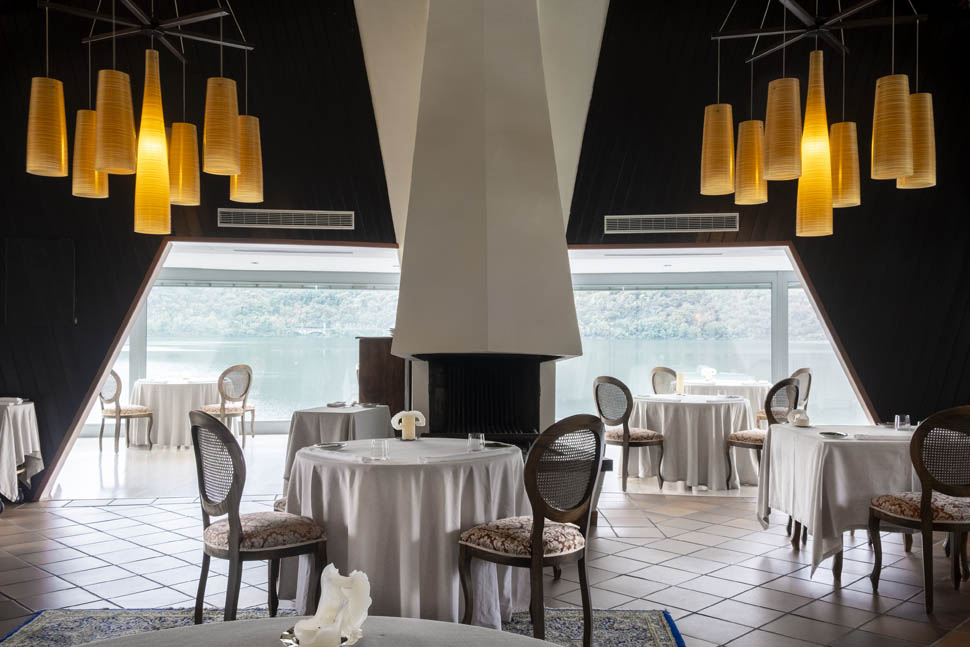
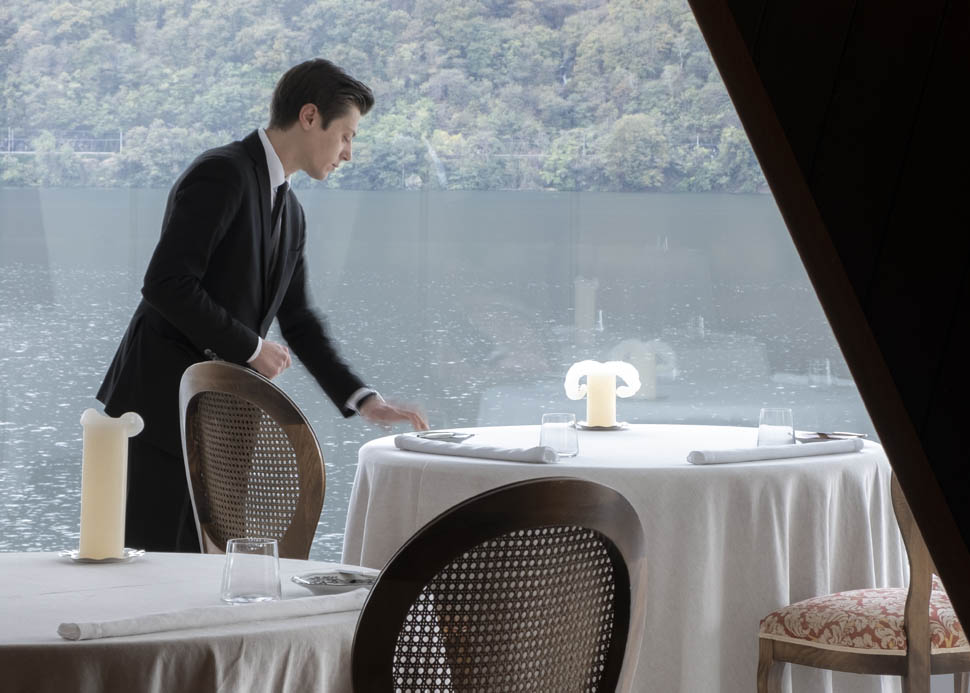
The restaurant is crowded but not noisy, thanks to the large spaces that provide discretion and ease for those seated at the round tables. The chef comes out and personally greets all arriving guests. The dining team is quick to offer water and propose a small aperitif menu worthy of the two Michelin stars: champagne, caviar and duck liver. Not giving in to temptation, we go straight "Lungolago".
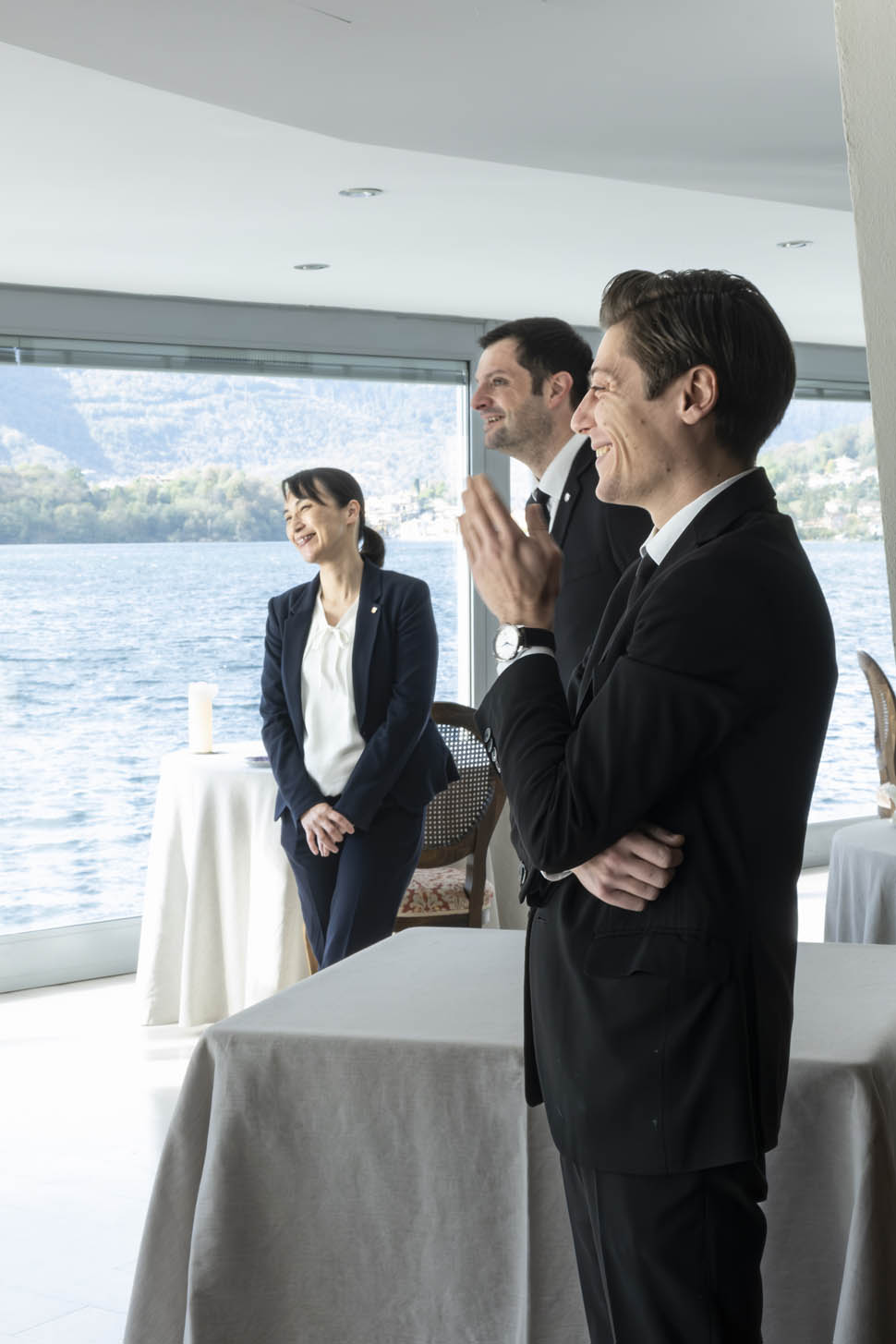
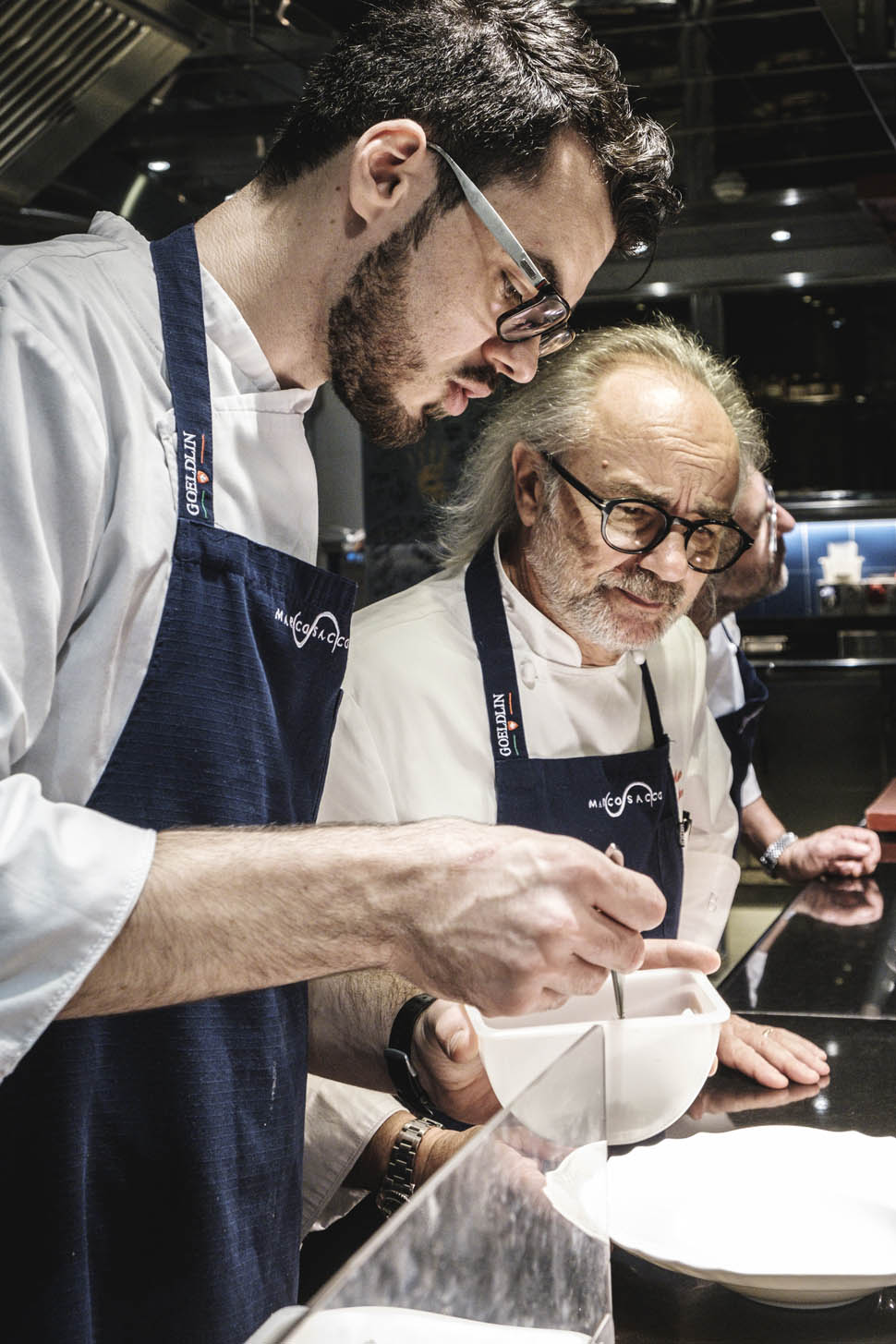
Striking from the outset is the care taken with everything revolving around the menu: the paperwork details, a long introductory text signed by the chef, the oral narrative from the floor team. The need to tell the story of today's Little Lake is palpable. What menu is "Lungolago"? It is meant to be the gastronomic translation of a walk around Lake Mergozzo taken by the chef together with his wife. A declination in dishes that evolves following the rhythm of the seasons but keeps as keywords raw materials, products, colors, scents and views of the Verbano-Cusio-Ossola area.
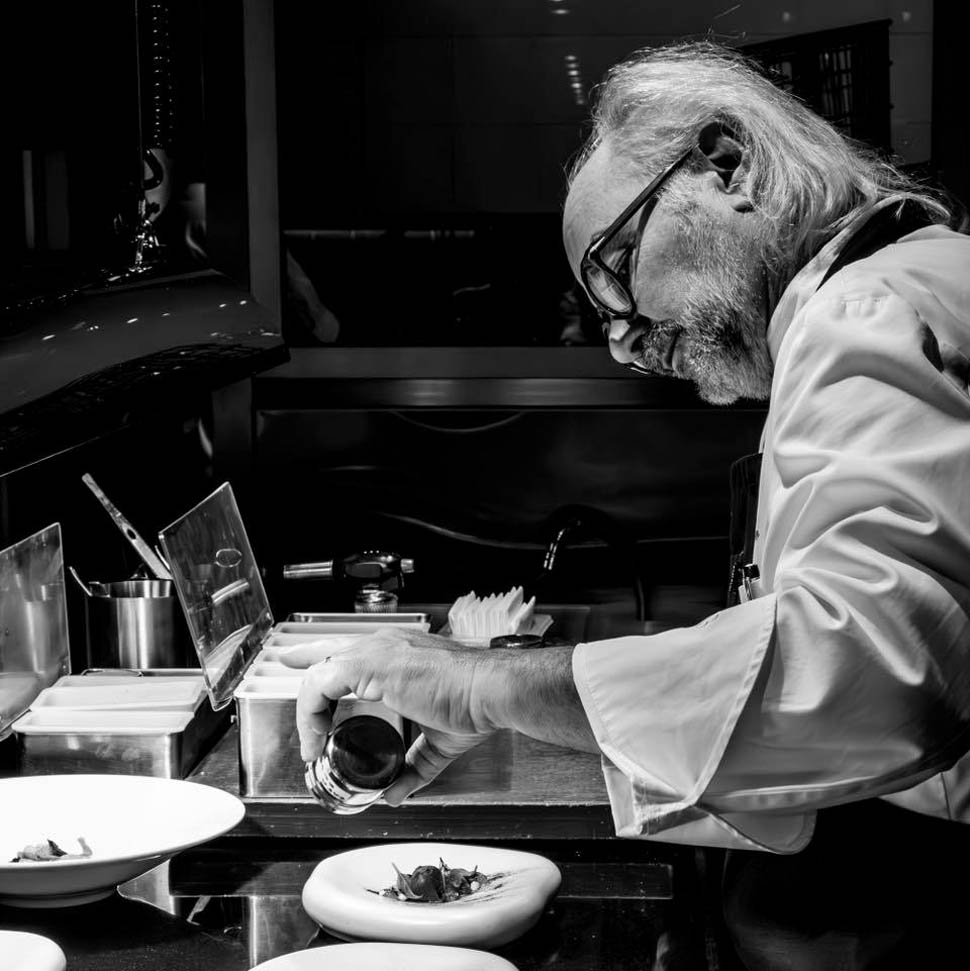
It is a local but identity-driven journey: no zero-kilometer fundamentalism, no closure to "distant" raw materials and techniques. "Lungolago" is a perfect syncretism between a geographical map and the training novel of a traveling chef.
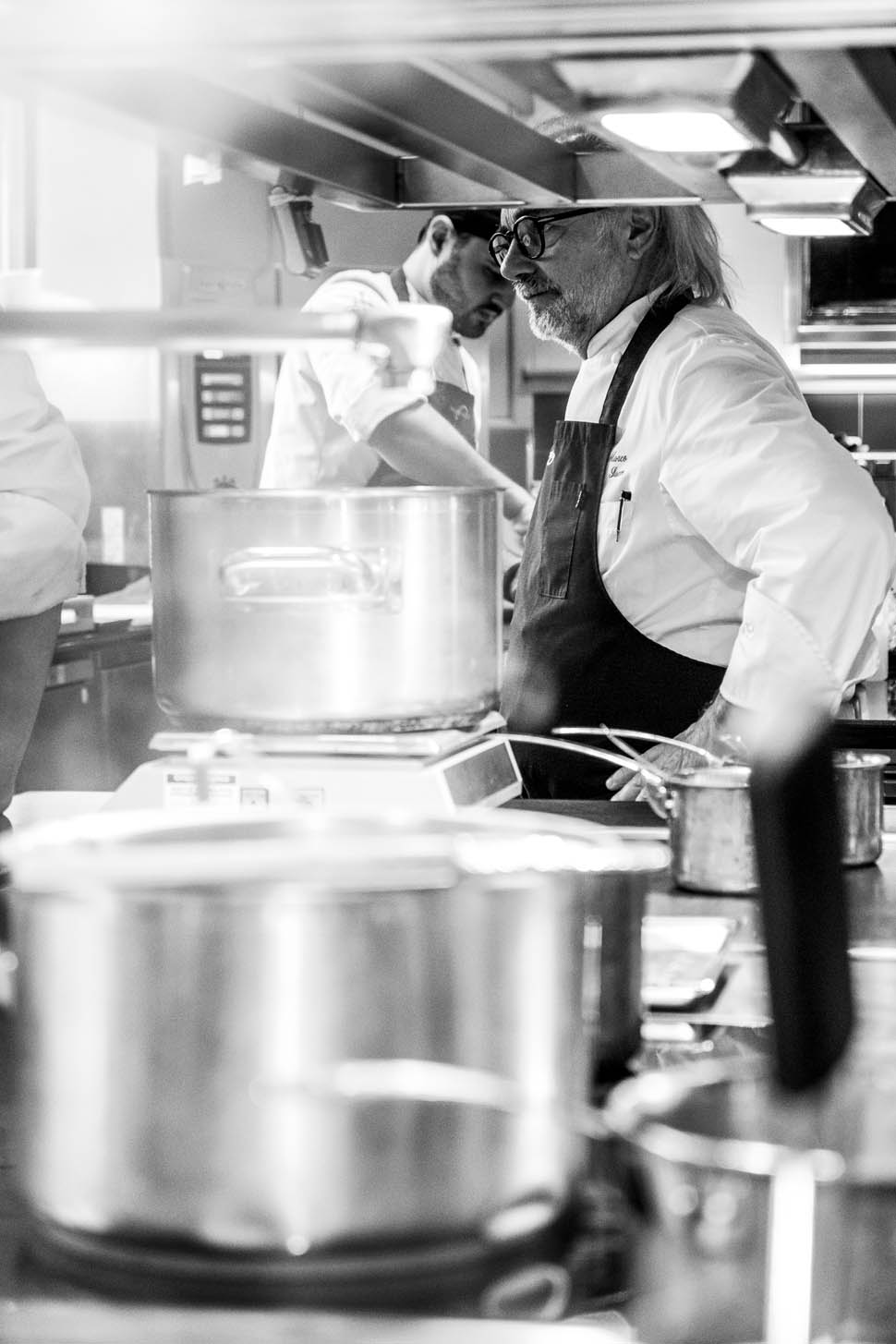
The dishes
It's 9:15 p.m. on Lake Mergozzo, and we open the dances with a welcome from the kitchen, reinterpreted in a "hiker's snack" key: prosciutto crudo from the Vigezzo Valley, missultin butter, and rose cake. In the dining room to officiate the ritual is a team of young talents; leading them on our veranda is Vittorio Brizio, head of the winery. Completing the senior dining team are sommelier Sayaka Anzai and chef de rang Francesco Mattia Fiori. The first dish is "Lingotto" and is meant to depict the scene of a fisherman grappling with a catch on the pebbles of the lake.
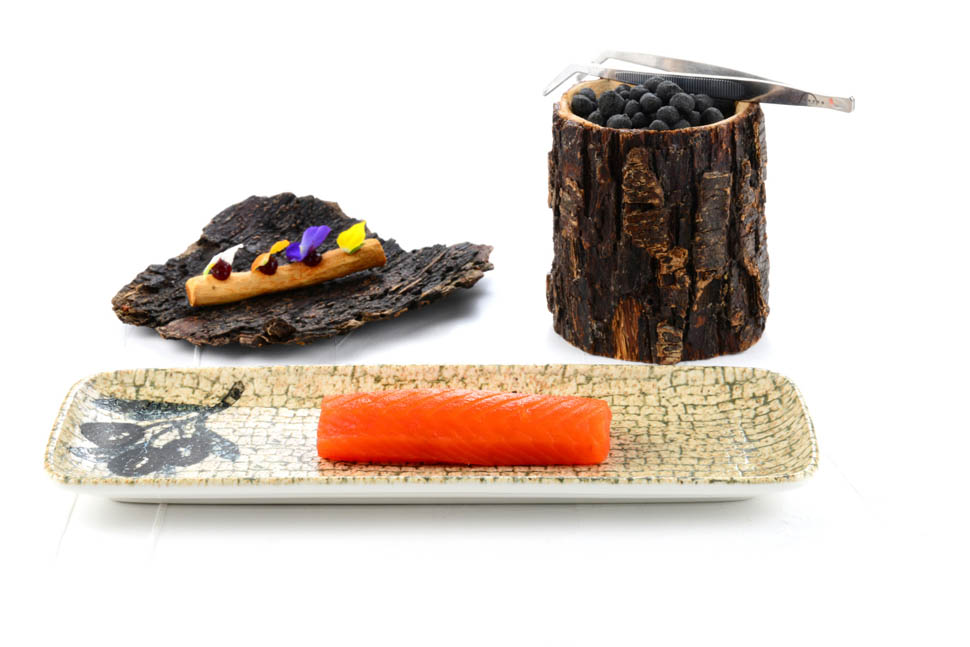
The catch is a marbled trout smoked from the kitchen, the pebbles are bread crumbs and balsamic vinegar, the fishing rod is dried scorzonera with raspberry gel. A plastic beginning fruit of essential staging, with a main raw material, trout, perfect in texture and delicacy and a raspberry gel on dried scorzonera that gives an acidic lash. It continues with "Lumaca Lumaca", "Snail, Snail", where the kitchen pairs a pâté of sea snails glazed with papaya and papaya seeds flavored with genepy from Val Formazza with a land snail with seaweed beurre blanc.
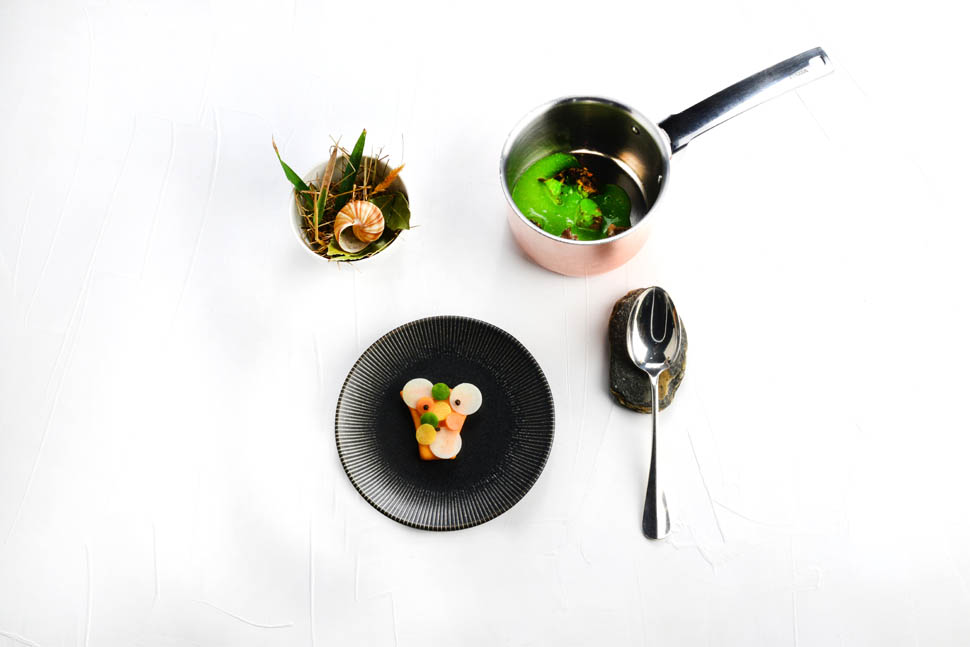
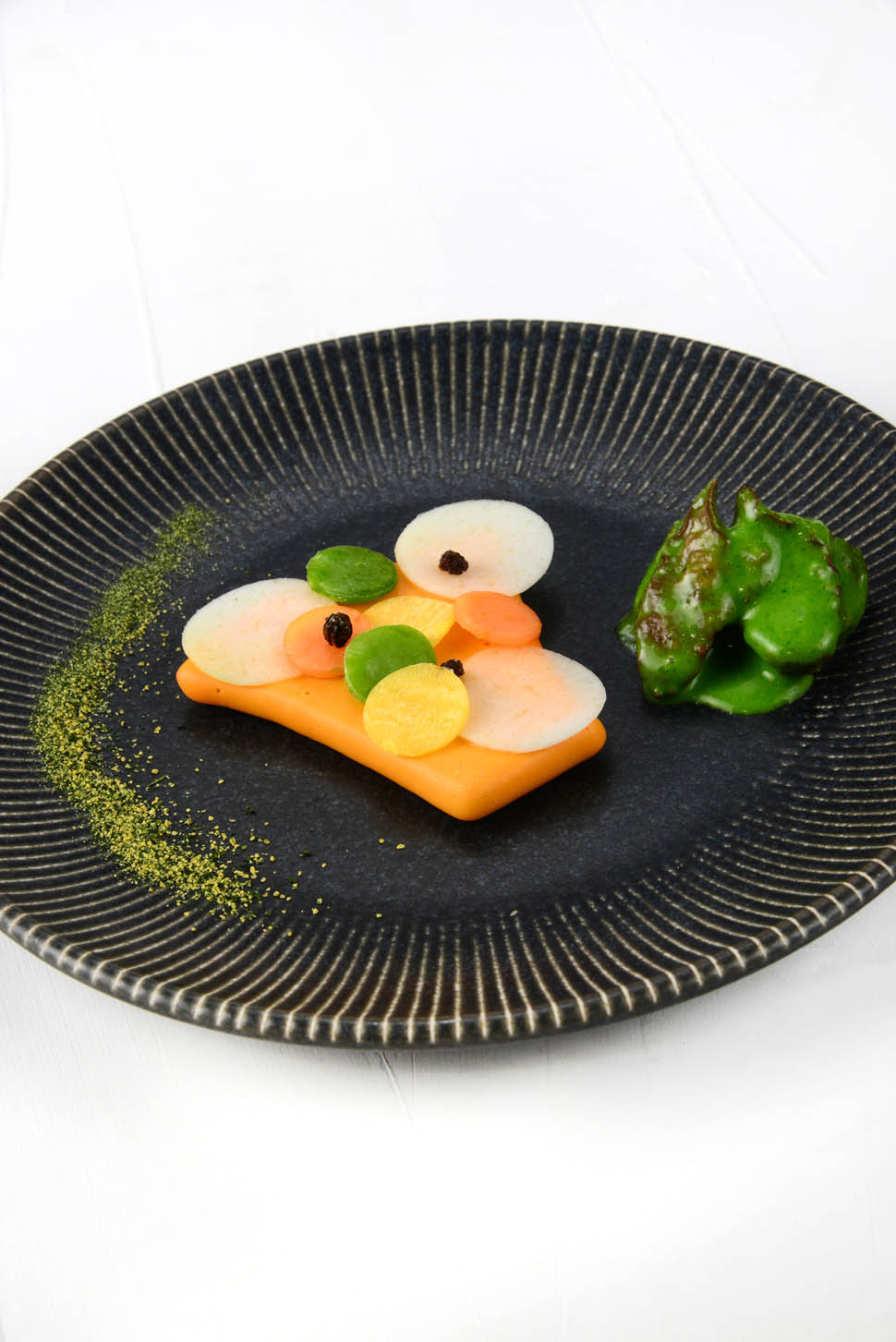
Sea snails are poetic license relative to freshwater, but the verdict for the palate is unanimous: the dish is a roller coaster that runs fast between iodine and balsamic, sour and fatty. The third passage raises the bar. "Bottarga?" is inspired by the sort of magical realism one encounters in the shadows of the woods, where nature spirits amuse themselves by deluding and confusing wayfarers. And indeed, this roe is not roe: on the plate are a chip of dried plantain, Sardinian fregola collected in a bag of torpedo broth jelly, a candy of fermented plantain broth, and finally a cold plantain dashi with cilantro. Technically very complex, certainly well-executed, the dish will prove to be the least intelligible of the course, the one most difficult to trace back to a single idea of a dish.
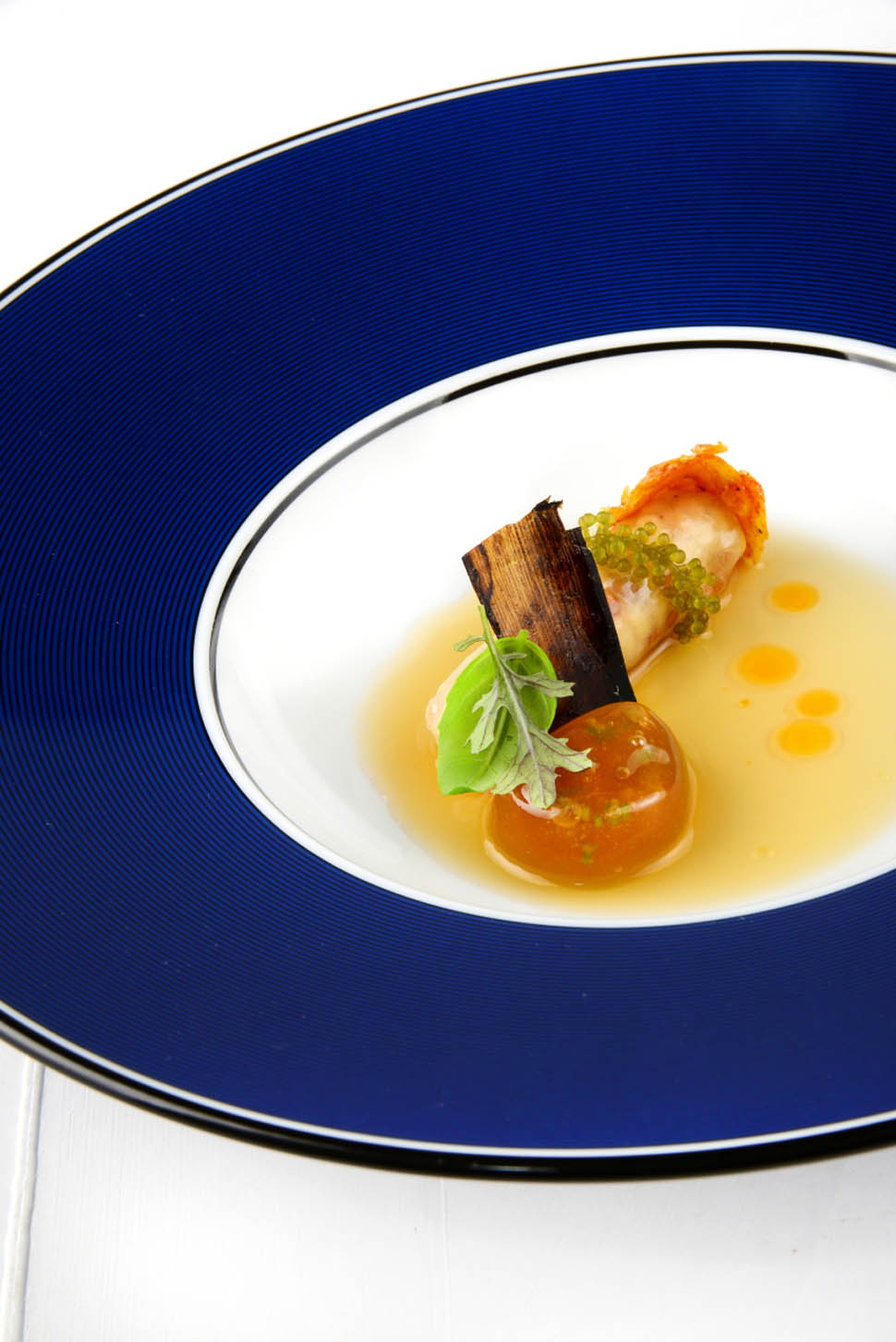
"Zafferane" brings to the table a classic of poor freshwater cuisine. Frog legs sautéed in alpine butter, aioli sauce, saffron, chervil and then Carnaroli rice chips with saffron powder and pollen. Here we find territory, identity, technique and, above all, deliciousness: the fattiness of the fried rice is well balanced by the acidity of the aioli sauce, and the saffron adds a bitter, earthy note that is round and aromatic.
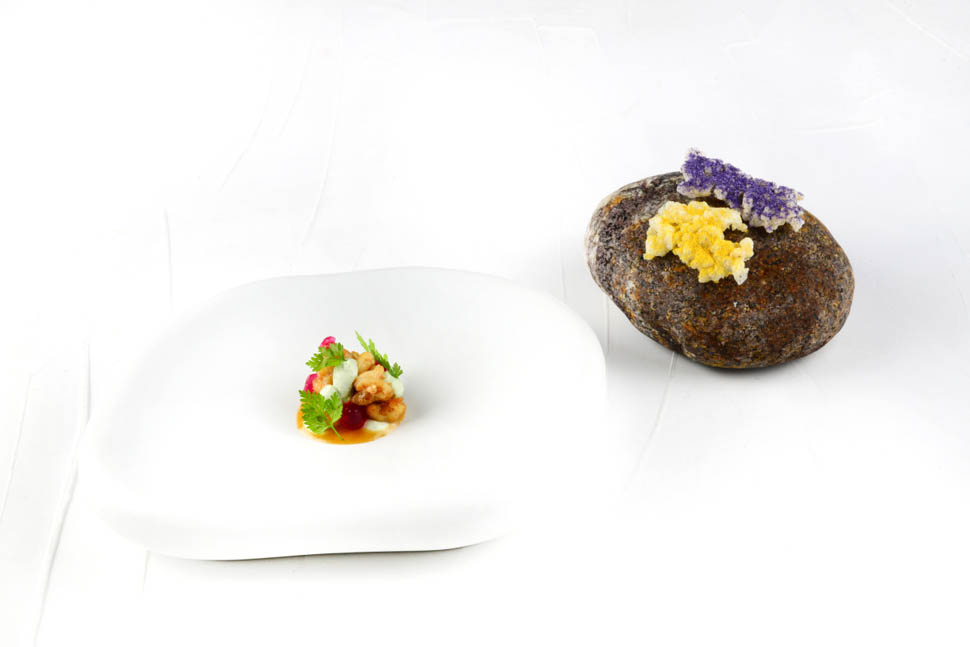
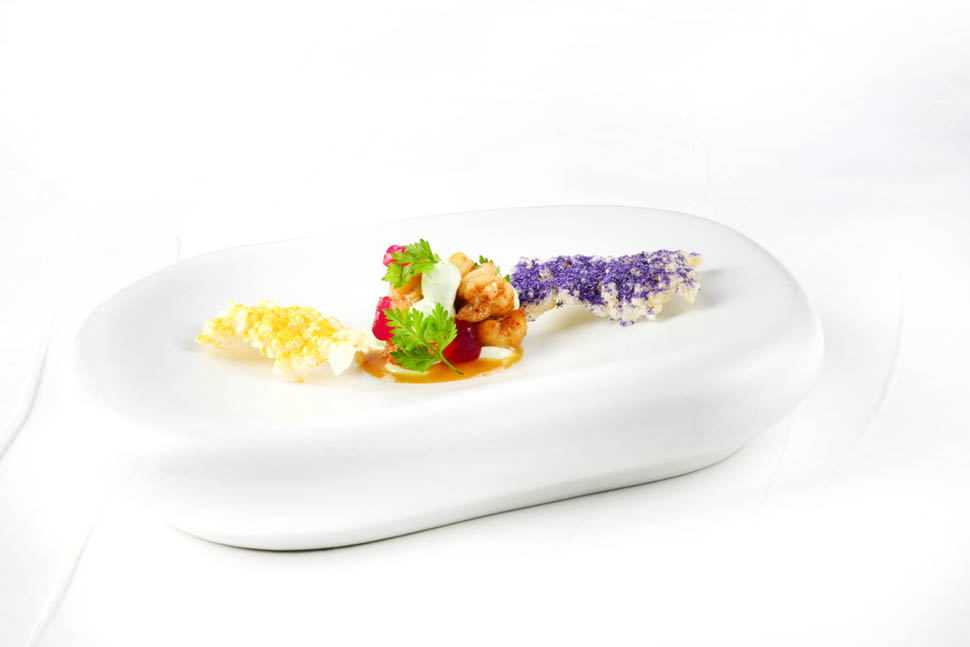
Amusing interlude, between the last appetizer and the risotto: one is invited to search on the table, as if we were with the chef and his wife on a walk. A few moments of amazement, until lifting the stone that contained the chips reveals a reserve of alpine butter destined for a very short life. The only first course of the walk is "Riso in risaia." From the peaks above the lakes, the eye can travel to the rice fields: Carnaroli rice, cooked in miso water, whipped with butter and Parmigiano, sake, spirulina seaweed sauce. In three words: umami, umami, umami, for a dish that starts with a classic Italian-style risotto and then turns its gaze to the East, leaving a deep and very long hint of toasting in the mouth.
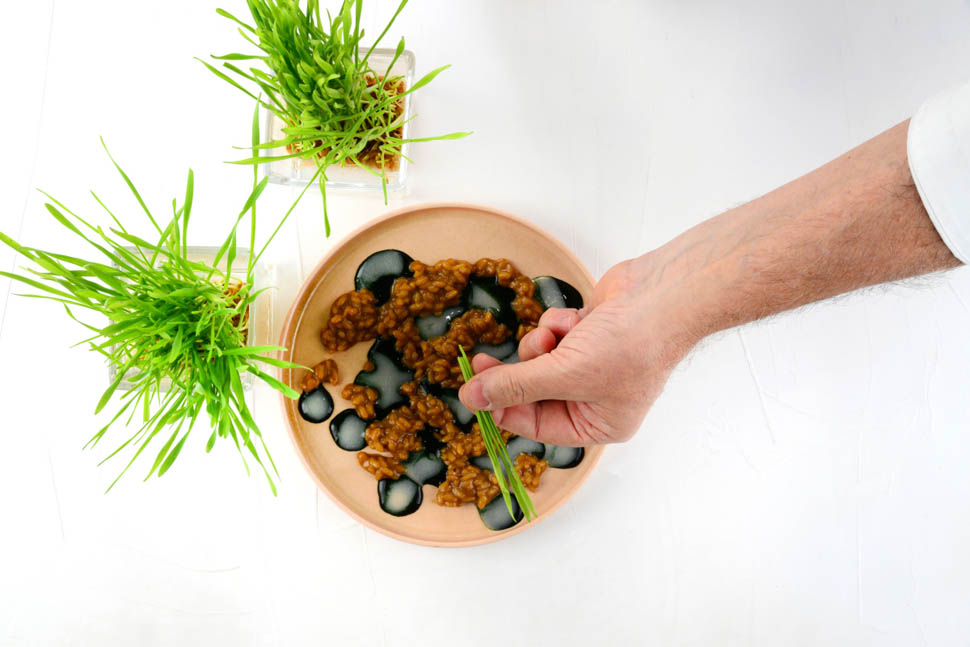
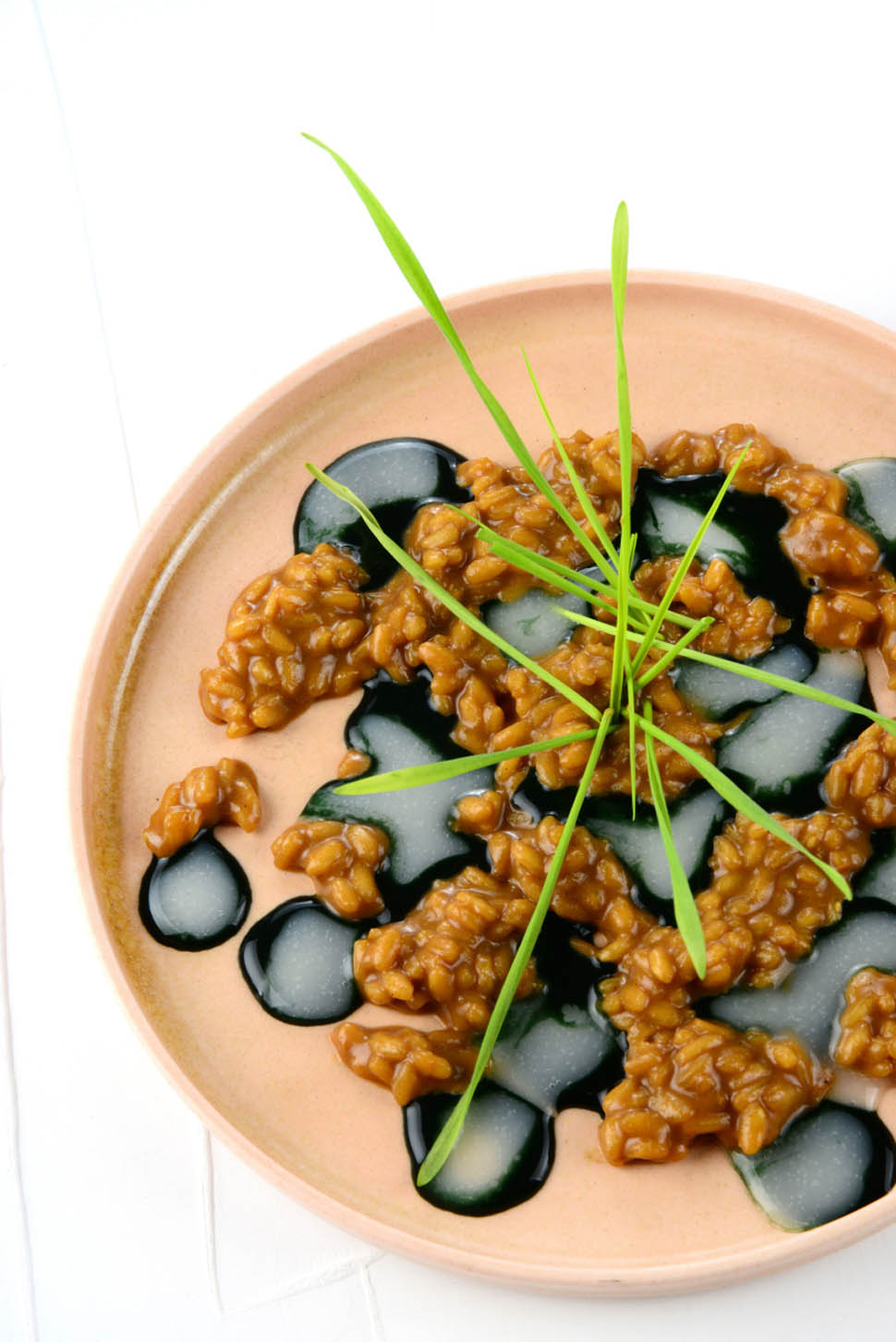
It is the turn of "Con il thè di Premosello" to inaugurate the second courses. It surprises right from the plating, as it is literally served with saucer, cup and hot drink infuser. Buratello eel cooked on the grill with the skin on, buratello eel sauce, rose sorbet, to be then complemented by the scents of the ingredients concealed in the infusers. A great dish, surprising in the pairing, in the hot and cold contrast and why not, even useful to discover that Premosello is the chef's hometown and that green tea was grown here for the first time in Italy.
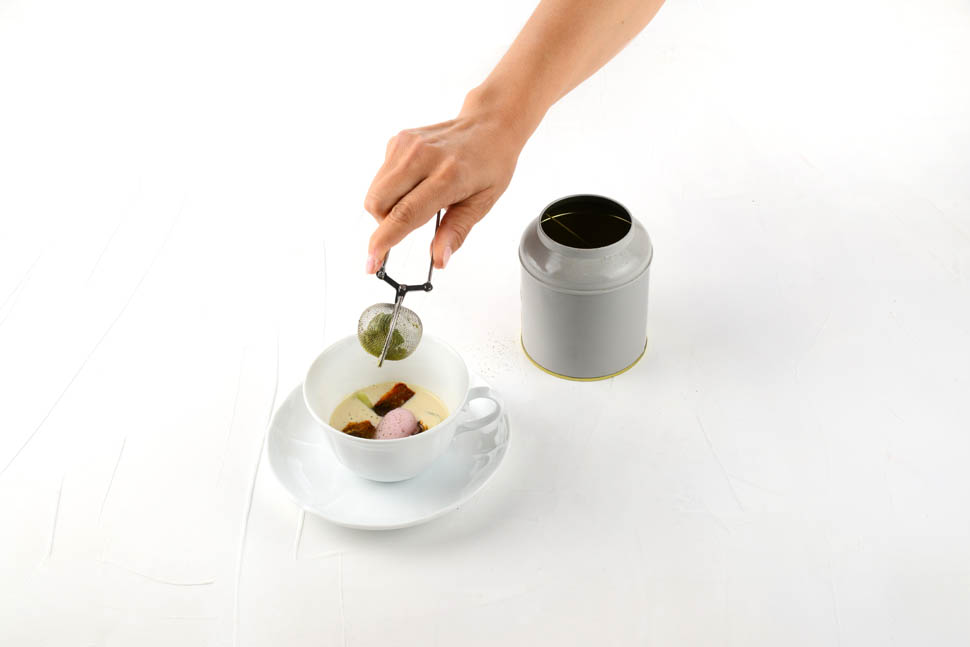
The last savory run of the tasting "Nel canneto," a dish in three steps: duck breast cooked on its skin and then in the chicken skin, marinated with koji, finanziera and fig; wafers with fig and duck liver; pearl stuffed with figs, clams and mussels in ramen broth made with chicken, duck carcass, pig's feet, kombu seaweed and shitake mushrooms. A second course to be amplified to the full, capable of combining East and West, land and sea, sweetness and iodine and then conveying a harmonious and precise taste to the palate.
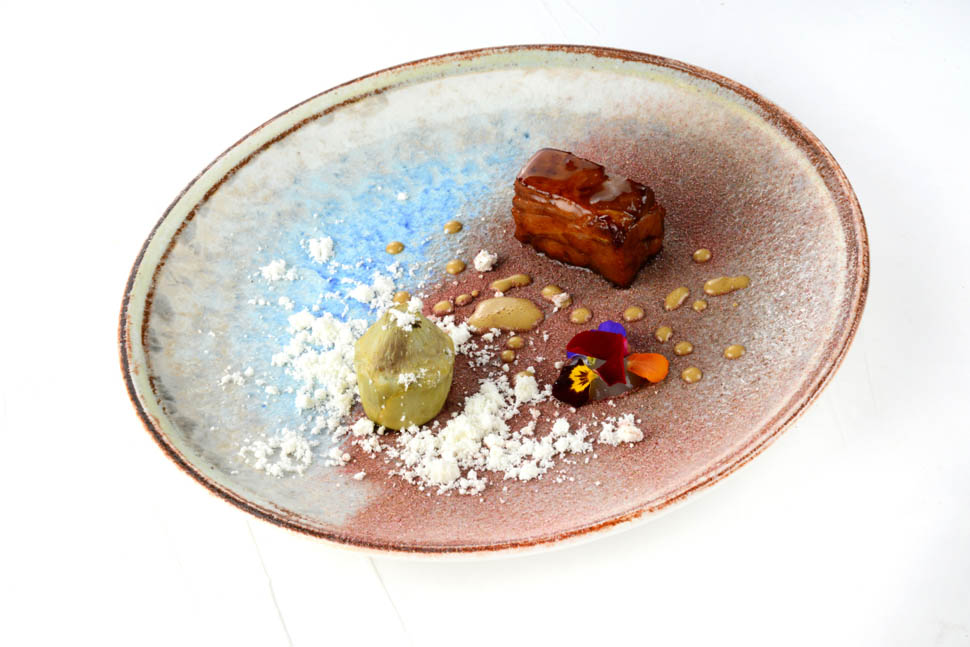
The dessert is the only course with a look that also celebrates the past: "1974 50°" is a compilation of Marco Sacco and pastry chef Cristiano Catapano's favorite desserts: pannacotta, éclair with three chocolates and rum, torroncino parfait, apple pie, revisited tiramisu, meringue and raspberry ice cream, "cacio e pere" in homage to Catapano's Roman origins... A triumph of classic sweetness, scent of sugar and butter, the table becoming a glutton's paradise.
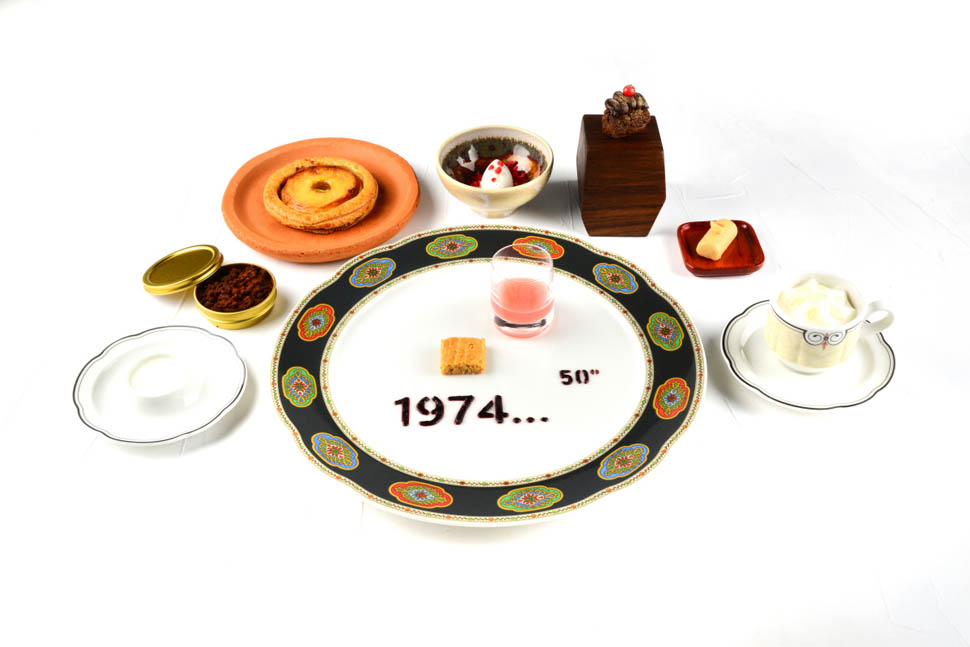
It is barely past 11:13 p.m. Hall and Kitchen closed the course in less than two hours net: synonymous to rhythm, synchronicity, craftsmanship, and above all the knowledge that a restaurant dinner should never resemble a kidnapping. What is a restaurant after all? Much more than a kitchen, for sure. A restaurant is also identity and humanity; territory and worldview; welcome, warmth, service; pleasure for sight, smell and, of course, the palate. Always with the guest in mind.
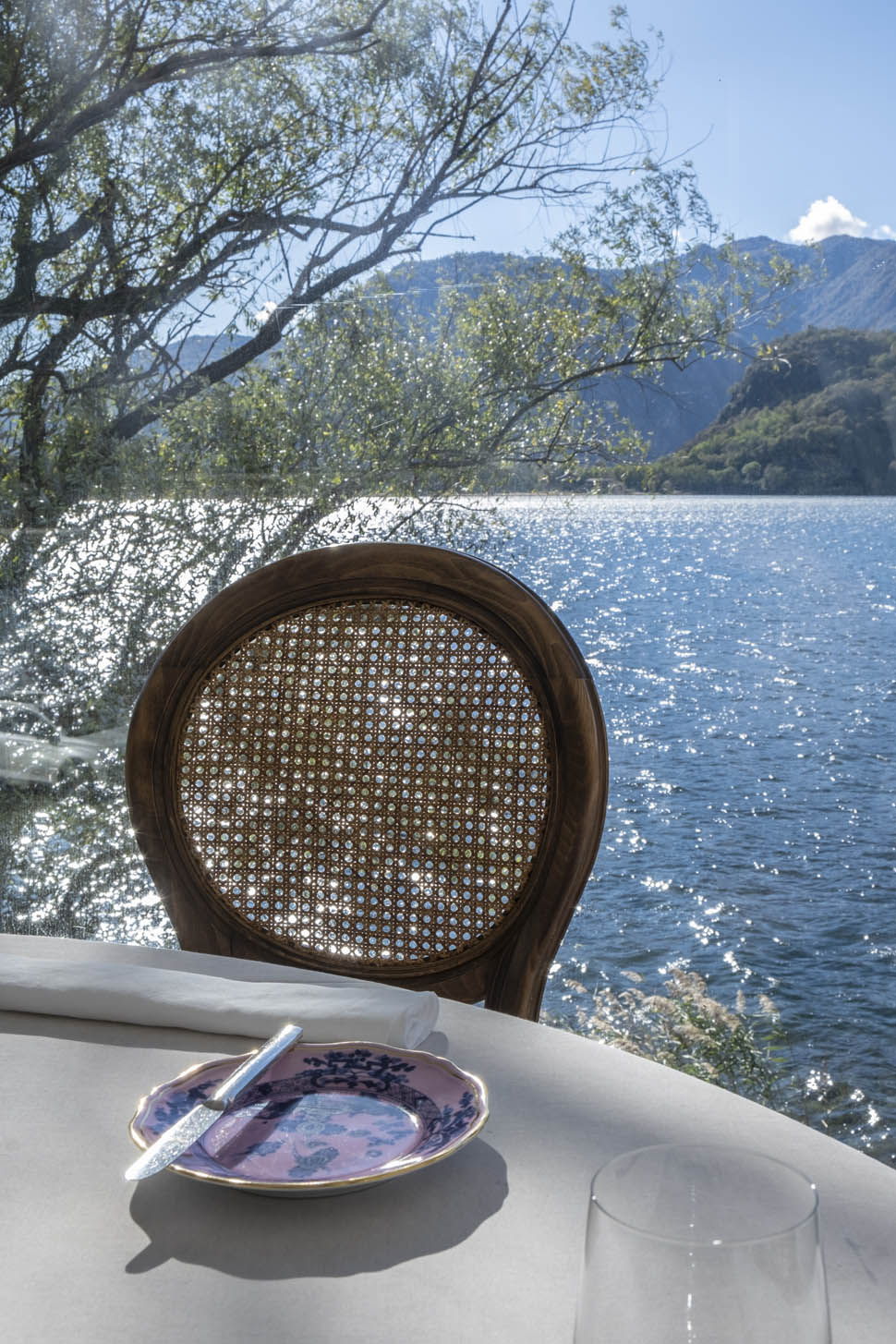
Piccolo Lago conveys the idea that it is fully aware of this: it has been taking the responsibility of spreading the word of freshwater cuisine in these areas for 50 years; it eschews mileage dogma and contaminates its DNA with ingredients and techniques from great international cooking schools; it looks to the future without fear and continues to think of new dishes capable of telling, surprising, making people smile and enjoying those who choose to sit at its tables.
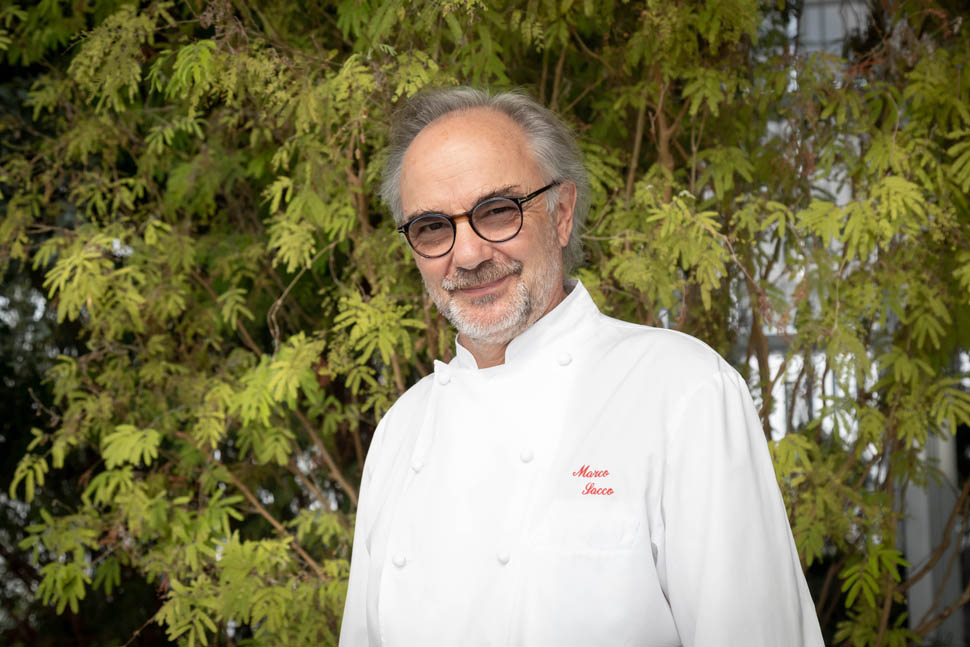
Contact
Piccolo Lago Restaurant
Via Filippo Turati, 87 28924 - Verbania (VB)
Phone: +39 0323 586792
info@piccololago.it
Open Wednesday for dinner
Thursday through Sunday lunch and dinner.
Closed Monday and Tuesday.
Hours: 12 noon - 2 p.m.
7 p.m. - 9 p.m.
